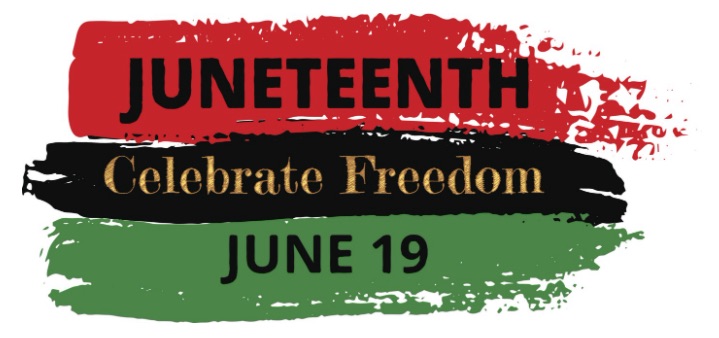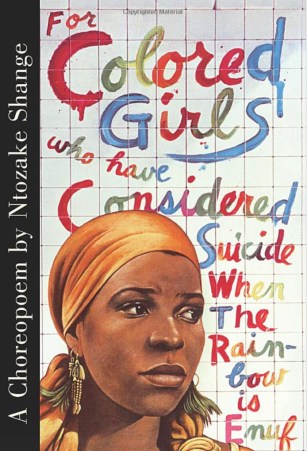Read, Watch, Listen, Learn
Commemorating Juneteenth

There are copious books, podcasts, films, and interviews about black culture and experience — far too many to list here. In honor of Juneteenth, Indy staff members Caitlin Fitch, Ricky Barajas, and Ava Talehakimi have put together the following primer, which includes books, videos, podcasts, S.B. Public Library suggestions, and other resources. Dive in.
To Read
Enslavement Narratives
Beloved, by Toni Morrison: The heartbreaking story of a mother who is haunted by her decision to kill her child to protect her from the horrors of slavery.

Kindred, by Octavia E. Butler: A black woman from 1970s U.S. gets whisked back in time to the Antebellum South in order to save her slave-owning ancestor.
Song Yet Sung, by James McBride: Set in the swamps of Maryland’s Eastern Shore, this is a retelling of Harriet Tubman’s life and experiences before her heroic saving of enslaved people through the Underground Railroad.
Interpersonal Racism
Recitatif, by Toni Morrison: A short story that challenges our preconceived understandings of race and class by following the rocky lifelong relationship between a black woman and a white woman, without revealing the identities of either woman.
Citizen: An American Lyric, by Claudia Rankine: A collection of poems and short stories that examine the impact of everyday liberal racism on black people.
Institutional Racism
A Raisin in the Sun, by Lorraine Hansberry: A black family in Chicago meets institutional and interpersonal setbacks in their attempts to improve their lives.
Are Prisons Obsolete? by Angela Davis: The former Black Panther discusses the history, function, and future of the carceral system.

The New Jim Crow: Mass Incarceration in the Age of Colorblindness, by Michelle Alexander: Jim Crow laws created segregation and oppression but were largely overturned because of the Civil Rights Movement. Alexander examines legislation that has created the prison industrial complex.
The Immortal Life of Henrietta Lacks, by Rebecca Skloot: Henrietta Lacks was a black woman whose cells were harvested by doctors unbeknownst to her or her family to be used for research and experimentation. Lacks was the first immortal human cell line that is still used for medical testing to this day.
Black Feminism/Womanism
For Colored Girls Who Have Considered Suicide / When the Rainbow Is Enuf, by Ntozake Shange: A blend of poetry and playwriting that follows the stories of a group of black women who have suffered oppression for their race and gender.

Ain’t I A Woman? by Bell Hooks: Demarginalizing the intersection of race and sex, the book is a black feminist critique of antidiscrimination doctrine, feminist theory, and antiracist politics.
Thick: And Other Essays, by Tressie McMillan Cottam: A series of fearlessly honest essays exploring healthcare, beauty, money, and more through the lens of black womanhood.
I Know Why the Caged Bird Sings, by Maya Angelou: Beautifully written, this first book in Angelou’s seven-part autobiography follows the author through childhood and her teenage years, as she recalls her experiences of racism, abuse, and trauma, and how she found solace in her love of literature.
White Privilege
Boy, Snow, Bird, by Helen Oyeyemi: A retelling of Snow White that is also an examination of white privilege and how small actions can add up to full-blown prejudices.
The Possessive Investment in Whiteness, by George Lipsitz: Lipsitz refutes the idea that “white” is a meaningless category and discusses the ways in which public policy is shaped by personal prejudices in order to maintain a racial hierarchy.

Me and White Supremacy, by Layla F. Saad: Use this book to, as Saad writes, “dismantle the privilege within [yourself] so that [you] can stop (often unconsciously) inflicting damage on people of colour, and in turn, help other white people do better, too.”
Black Culture/Black Life
Maud Martha, by Gwendolyn Brooks: Told in a series of short memories, Maud Martha is the poetic life story of a black woman in Chicago.
Homegoing, by Yaa Gyasi: This multigenerational novel follows the lineage of two Asante sisters — one is taken to America and sold into slavery, while the other marries an English slave trader and remains close to her village. Each chapter follows the story of the next generation and the realities of being black in America during and post slavery.

Their Eyes Were Watching God, by Zora Neale Hurston: Considered a classic of the Harlem Renaissance, this book is set in one of the first self-governing black communities and follows a young woman as she navigates her way through three tumultuous marriages.
Mules and Men, by Zora Neale Hurston: Hurston’s ethnography about African American folklore. It follows two communities in Florida and Louisiana.
Notes of a Native Son, by James Baldwin: In a collection of 10 essays, Baldwin discusses the racial issues that led to him expatriating to Paris, and the racial issues that led to him moving back to the U.S.
The Fire Next Time, by James Baldwin: In two essays, Baldwin discusses the critical role that race has played in U.S. history
The Yellow House, by Sarah M. Broom: Broom’s memoir chronicling her experience growing up in New Orleans East, an often forgotten and predominantly black neighborhood of New Orleans. Her family’s home — a dilapidated yellow house — was destroyed in Hurricane Katrina.
To Watch
Toni Morrison on Racism’s Immorality
Jane Elliott’s “Blue Eyes/Brown Eyes” Anti-Racism Exercise on the Oprah Winfrey Show, 1992
The Godmother of Rock ’n’ Roll: Sister Rosetta Tharpe (2011)
To Listen
Eula Biss: Let’s Talk About Whiteness, On Being with Krista Tippett
Resmaa Meenaken: Race and Healing Body Practice, On Being with Krista Tippett
Santa Barbara Public Library’s Anti-Racist Reading List
White Fragility, by Robin DiAngelo
How to Be an Antiracist, by Ibram X. Kendi (check out Kendi’s online essays)
The City We Became, N.K. Jemisin
Parable of the Sower, by Octavia E. Butler
Let’s Talk About Race, by Julius Lester
Online Resources
Curated collection of books for kids on the lived experiences of black Americans




You must be logged in to post a comment.